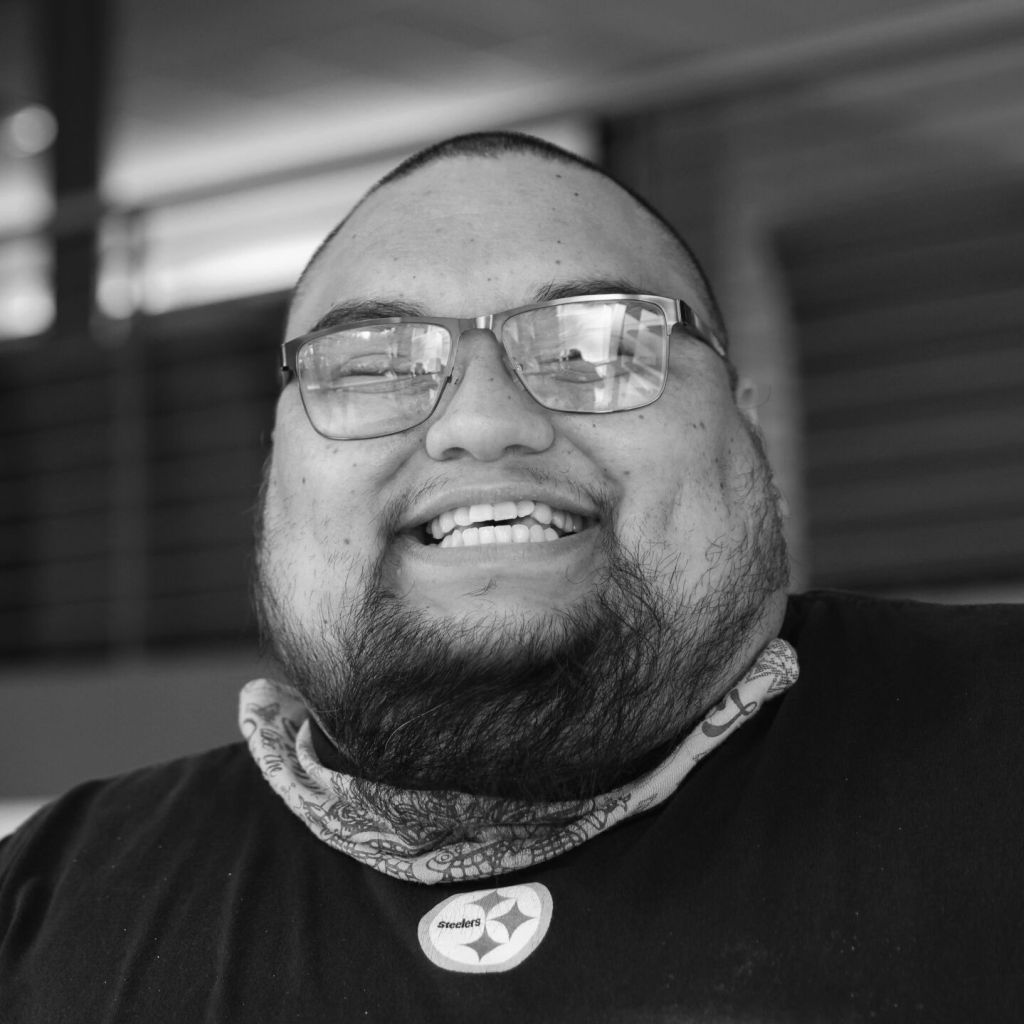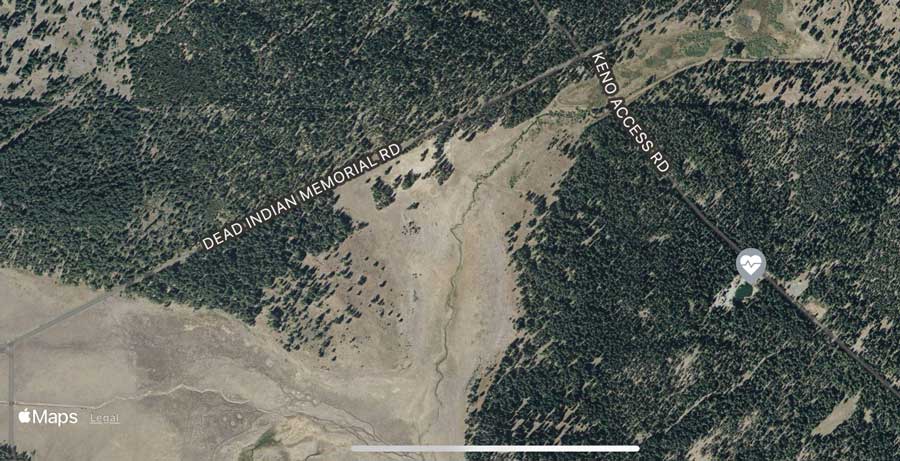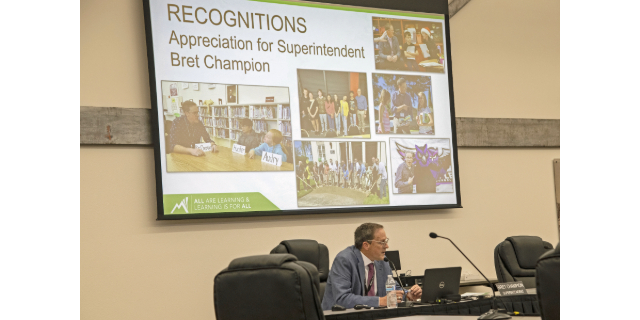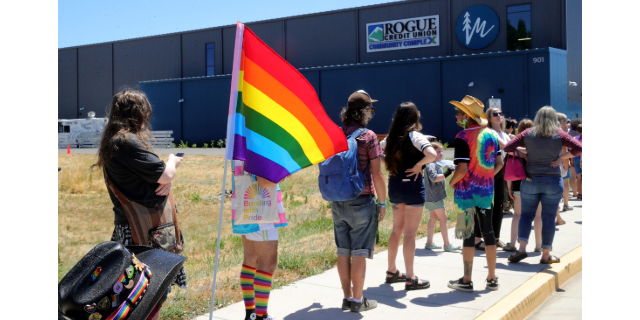Homeless college student is vocal advocate for Central Oregon houseless
Published 5:00 am Sunday, February 27, 2022

- Daniel “Dray” Aguirre stands in the Health Careers Center at Central Oregon Community College in Bend.
As it neared zero degrees on a clear, starry night in Central Oregon, Daniel “Dray” Aguirre switched on his Mr. Heater inside a snow-covered trailer he calls home.
When temperatures plummet, the Central Oregon Community College student relies on his trusted propane heater, which he purchased two years ago with his mother’s help. He knows the risks of using the heater indoors, where the carbon monoxide could poison and kill him.
Lucky for him, he said, there’s ventilation through the holes and cracks of his trailer walls.
“It has gone out before, and I froze my butt off,” said Aguirre, who identifies as Native American and Latino. “I just hide under my blankets and don’t get out until I see the sun. That’s just how I’ve endured for so long.”
The 32-year-old is one of thousands of community college students in Oregon who experience homelessness and food insecurity. A recent survey of roughly 8,100 students at 14 Oregon community colleges found that around half experienced housing insecurity and 1 in 5 experienced homelessness within a year of taking the #RealCollege survey, according to the Hope Center for College, Community and Justice. In addition, 2 in 5 respondents reported experiencing food insecurity.
Aguirre was advocating for homeless students like himself Tuesday by speaking on a college-run public panel before returning to his trailer in the woods between Tumalo and Sisters.
For weeks, his smiling face could be seen on the panel’s advertisements, which adorned campus walls and table tops, and it was common for students to wave to him as they walked by. After the panel discussion, he sat alone in the shelter he tries to avoid by lingering on campus.
There is no restroom or shower. What appliances he has routinely break down. Mice gnaw their way through his walls and clothes, seeking out his food. Once, he attempted, and failed, to construct a makeshift shower. The trailer where he’s lived since 2017 leaves him with a sense of embarrassment.
“It reeks of sadness and depression,” he said.
Overcoming his circumstances is why Aguirre recommitted himself to college in 2019 to pursue nursing. He uses his financial aid to pay for school, books, gas, phone bills, car repairs, and other necessities, including toothbrushes, cleaning supplies and mouse traps.
During the pandemic, he has become more politically active on campus and has lobbied in Salem and Washington, D.C., on more funding for struggling students.
“I’m doing this to blaze a trail so that this kind of situation doesn’t happen anymore,” he said, motioning to his cluttered trailer. “I don’t want any other students or people to live in these kinds of situations because it’s really hard.”
Aguirre is no stranger to struggle. He describes the Lancaster, California, community he grew up in as a ghetto. Gangs — Bloods, Crips, Skinheads — roamed the streets. From age 2 to 14, he became used to the sounds of gunfire, helicopters and police sirens. But he loved his community, its diversity, the neighborhood barbecues. There was unspoken respect among people there, he said, as if everyone knew the lines not to cross.
Still, life at home was unstable. Several of Aguirre’s family members suffer from mental health problems, including his father, who was verbally abusive and struggled with substance abuse throughout Aguirre’s childhood, he said.
During Aguirre’s senior year at Lancaster High School, he was practicing football when his father went into their garage and attempted to hang himself. He wrote a message on his arm, blaming Aguirre’s mother for everything he had gone through. But she found her husband just in time, Aguirre said. She lifted him up, set him down on the ground and called 911, saving his life. In the hospital the next day, Aguirre said his father, with bruises covering his neck, acted like nothing happened.
“That affected my whole life,” Aguirre said. “That was when I was a teen. As an older man, I wish he would have gotten the mental help he needed.”
His mother found the courage to move him and his two sisters from place to place, away from his father. The first stop was Yuba City, California. With few options, the family began experiencing housing insecurity, living with family members and in trailer parks before Aguirre moved out.
Meanwhile, Aguirre excelled in school, which he described as his “safe place.” As the family moved around, he consistently exceeded a 3.5 GPA. Despite receiving scholarships and acceptance letters to several universities, he didn’t pursue college after graduating high school. Instead, he devoted himself to the Church of the Harvest in Citrus Heights, California. For five years, he traveled around to conferences and did free labor for the church. He relied on fellow congregants for housing, but he said it wasn’t uncommon for them to kick him out, sending him to a church-run halfway house, which also couldn’t house him. His family and friends warned him that he was involved with a cult, but he pushed them away.
Well on his way to becoming a church leader, Aguirre said the church severed ties with him after a dispute. With no meaningful experience to place on a resume, and no church leaders agreeing to be references for work, Aguirre was back to square one. This time, he was homeless and alone. “I learned how to survive, and ever since then, I’ve been in survival mode,” he said.
Aguirre moved to Sisters in Central Oregon, where his mother had moved the year before. He immediately enjoyed the wild beauty of the place, but was struck by how few persons of color there were, a stark contrast to the diverse communities where he grew up.
After working jobs as a volunteer firefighter, a landscaper, a fry cook at McDonalds, he found a job with Bend Soap Company. His bosses there helped him at a time when he needed it. He enjoyed slow life working around the farm in the fresh air, milking goats and making soap, and he bonded with company owner Dwight Johnson, a man he called a mentor. He called the three-year experience there the “highlight of my life.”
On Tuesday, Aguirre reflected on the relationship with his dad. A few years ago, while reading the Bible, Aguirre realized that the resentment he felt toward his father was only hurting him more. He needed to forgive his dad.
One day while in his truck outside the trailer, looking out toward the Three Sisters mountain range, he called his dad and told him he was sorry for everything that had happened. He told his father that he forgave him for the harm he had caused their family. Aguirre said, “It was such a lift, like a weight off my shoulders … It’s what I needed to move forward.”
As Aguirre spoke of his past and present, beside him was one of the few possessions that are meaningful to him — his backpack. It’s a reminder that he is self-reliant, that if he needs to escape at any moment, he can pack his bag and go.







